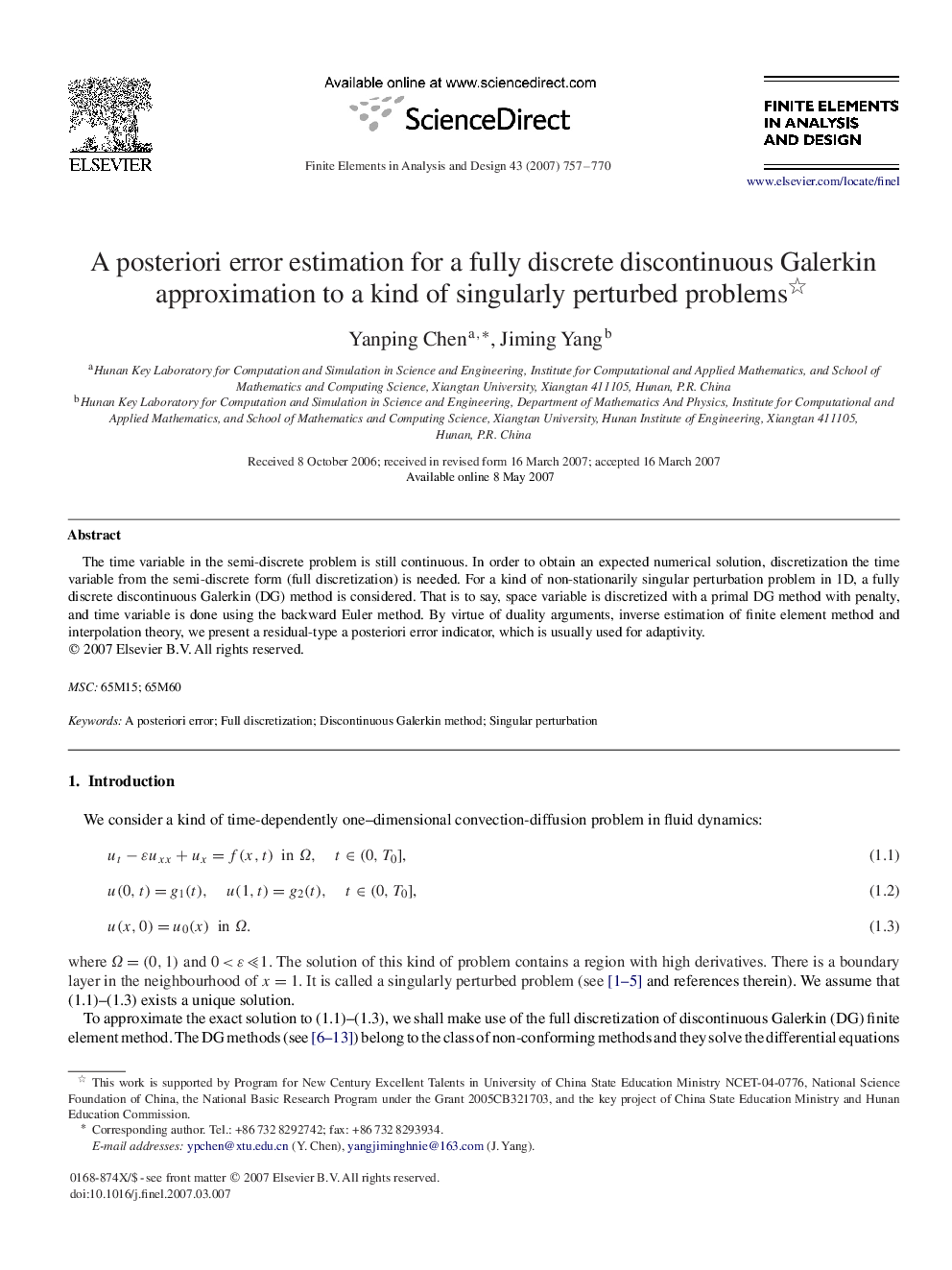| Article ID | Journal | Published Year | Pages | File Type |
|---|---|---|---|---|
| 514821 | Finite Elements in Analysis and Design | 2007 | 14 Pages |
Abstract
The time variable in the semi-discrete problem is still continuous. In order to obtain an expected numerical solution, discretization the time variable from the semi-discrete form (full discretization) is needed. For a kind of non-stationarily singular perturbation problem in 1D, a fully discrete discontinuous Galerkin (DG) method is considered. That is to say, space variable is discretized with a primal DG method with penalty, and time variable is done using the backward Euler method. By virtue of duality arguments, inverse estimation of finite element method and interpolation theory, we present a residual-type a posteriori error indicator, which is usually used for adaptivity.
Related Topics
Physical Sciences and Engineering
Computer Science
Computer Science Applications
Authors
Yanping Chen, Jiming Yang,
